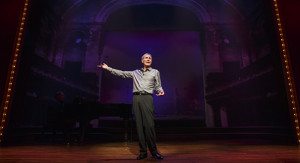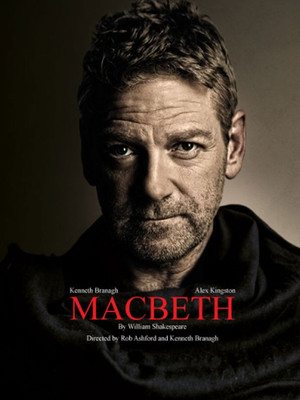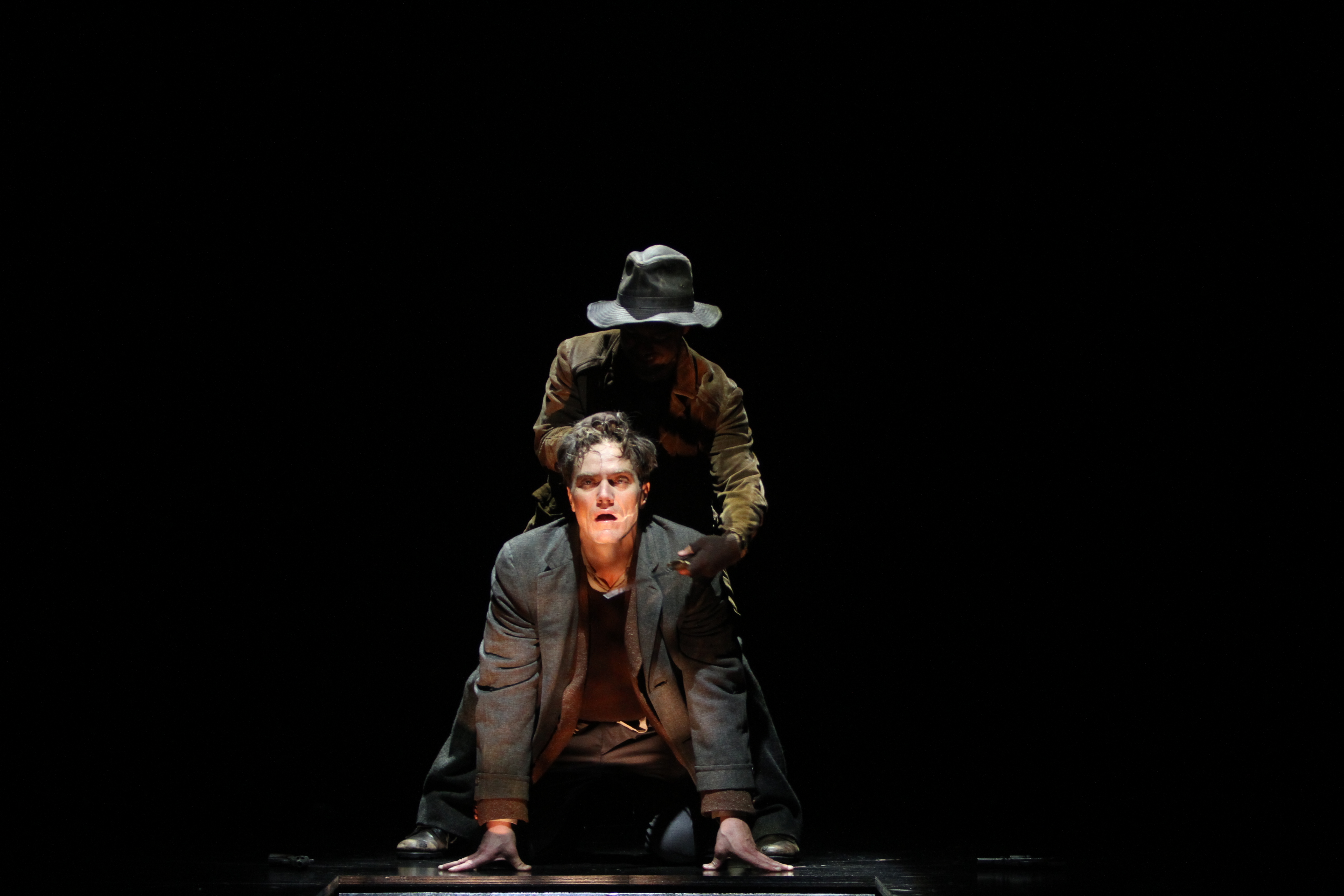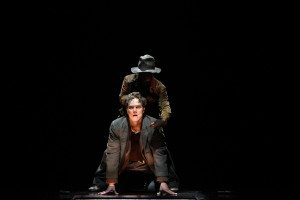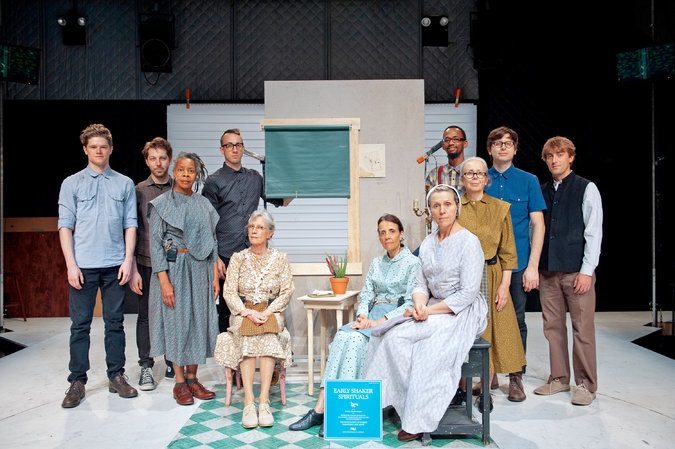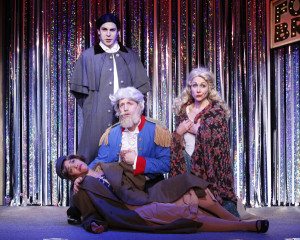90 minutes from New York City, along the banks of the calm Delaware River, an intricate plan of murder is unfolding. The plan involves seasoned playwright and professor Sidney Bruhl (Saxon Palmer), his inspired protegé, Clifford Anderson (Raviv Ullman), Bruhl’s anxiety ridden wife, Myra (Angela Pierce), famous Dutch psychic Helga ten Dorp (Marsha Mason), and gold digging lawyer Porter Milgrim (David Wohl).
Deathtrap, the classic play from Ira Levin, is currently receiving a mostly fine treament-with a few minor missteps -in the Bucks County Playhouse production of this long running Broadway show. The original splattered onto the New York stage in 1978, and continued to delicately strike a balance between terror and amusement for 4 years. For theater geeks who care, Marian Seldes played Myra, and she performed in every single one of the 1,809 performances during the run.It earned her a mention in the Guinness Book of World Records. At this quaint theater in Pennsylvania, Pierce will only have to play opposite her mediocre counter-part, Palmer, a few more times before the show ends its’ run through July 13th.
Pierce adds the perfect amount of paranoia and fear to Myra, while Palmer’s interpretation of Sydney seems disengaged and distant; a stark contrast to what should be charming, yet diabolical. Ullman brings a boyish charm with underpinnings of the devil himself , and Mason provides a welcome breath of humor in this otherwise intense tale of jealously and greed.
To elaborate much on the plot would be to divulge the surprises, and there are plenty of twists and turns to hold playgoers in suspense. Evan Cabnet’s direction and staging could benefit from sharpening, as some of the moments intended to shock merely cause a mild reaction of curiosity. Still, it is easy to understand what made this show one of the biggest hits on Broadway and when the body count is done, it is fair to observe that Bucks County Playhouse is bringing justice to this gem of a thriller.
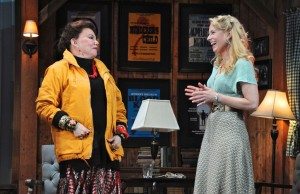
Deathtrap is now playing through July 13th at the Bucks County Playhouse in New Hope, PA. Several nearby shops and dining options make it an excellent day trip getaway from NYC. For tickets and information, visit http://bcptheater.org.



